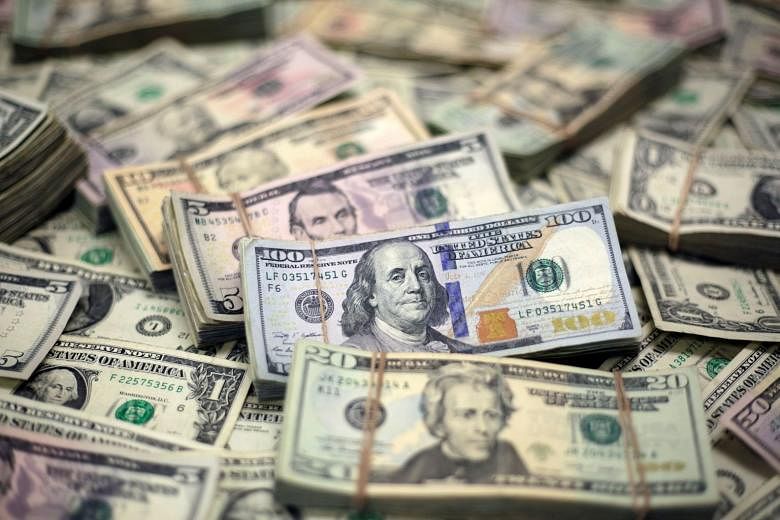The greenback lost ground against the Singdollar and regional currencies yesterday as the United States Federal Reserve disappointed investors by sticking to its original plan of raising interest rates, despite the strengthening US economy.
The US central bank raised its benchmark interest rate on Wednesday by 0.25 percentage point to a target range of 1.5 per cent to 1.75 per cent.
It also said it expected at least two more increases this year, even as it raised its growth forecasts for the world's largest economy.
But its statement disappointed market watchers, who had widely expected the central bank to announce a fourth rate hike this year, amid growing confidence that tax cuts and government spending would lift growth and inflation.
Still, the Fed has raised the forecast for rate hikes next year - it now expects to raise rates three times next year, up from an earlier estimate of two.
Higher US interest rates tend to raise borrowing costs for households and companies in Singapore, but a strengthening US economy is good news for exporters.
The greenback sank in response to the Fed's announcement, falling 0.3 per cent against the Singdollar within the hour after Fed chairman Jerome Powell's press conference, noted Phillip Futures investment analyst Samuel Siew.
The greenback reached a five-day low of S$1.3126 yesterday even as it fell against other regional currencies, such as the Japanese yen.
Mr Siew said the US dollar will likely face further headwinds from trade-related issues.
The Trump administration recently announced steel and aluminium tariffs and is weighing sanctions against China.
"This leads to market concerns and fears of a possible trade war as China is the largest holder of US Treasury bonds. Should China reduce Treasury bond holdings in retaliation, the US dollar will weaken," Mr Siew noted.
Mr Powell, who officially took over as Fed chairman on Feb 3, also sounded a warning about rising trade tensions, saying some Fed members are worried about the possibility of a trade war.
Against this backdrop, OCBC economist Selena Ling said Singapore's central bank will have a tough call to make at its upcoming policy meeting next month - whether to allow the Singdollar to strengthen further against the currencies of key trading partners.
Some economists are expecting the Monetary Authority of Singapore to tighten its exchange rate policy in view of the improving growth outlook and uptick in inflation here, which turned positive last year for the first time since 2014.
Ms Ling noted: "Given the current headwinds of heightened trade war tensions, it's probably a finely balanced call between pre-emptive tightening and keeping the accommodative policy buffer to wait and see first."
Chia Yan Min


